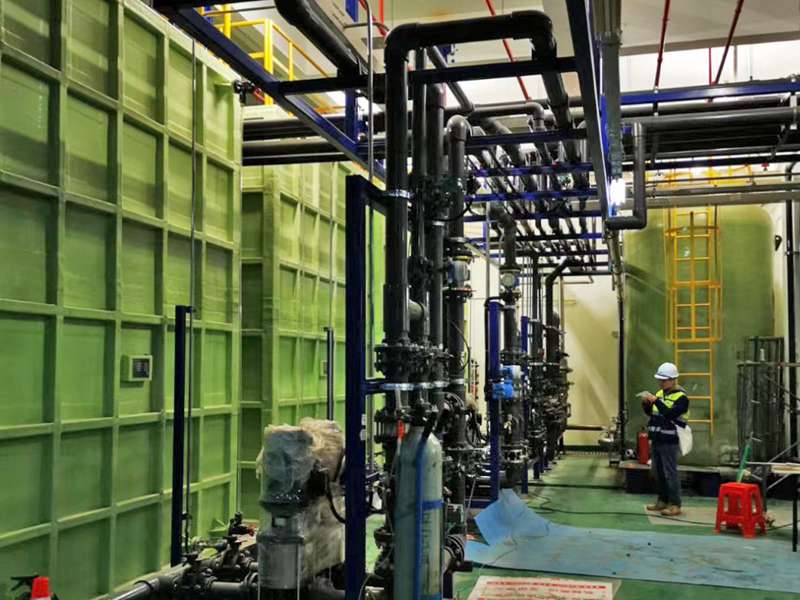Rectangular Tanks: Space-Saving, Corrosion-Resistant, Custom
Rectangular Tanks is a key solution in the manufacturing industry, specifically within General equipment manufacturing industry and Tank manufacturing. This article explores how No. 1289, Yingbin South Street, Jizhou District, Hengshui, Hebei, China supports professionals with durable, high-performance products, and explains why this product is an ideal choice for businesses in these sectors.

Table of Contents
- Rectangular Tanks Overview
- Benefits & Use Cases of Rectangular Tanks in Tank manufacturing
- Cost, Maintenance & User Experience
- Sustainability & Market Trends in manufacturing
- Conclusion on Rectangular Tanks from No. 1289, Yingbin South Street, Hengshui, Hebei, China
Rectangular Tanks Overview
Rectangular tanks are engineered vessels designed to store and process liquids and chemicals while maximizing volumetric capacity within a confined footprint. In the General equipment manufacturing industry, and specifically tank manufacturing, their straight-wall geometry allows tight, side-by-side installation, efficient use of floor space, and easy integration with walkways, skids, and process modules. Commonly produced in corrosion-resistant FRP (fiberglass reinforced plastic), they can also incorporate thermoplastic liners depending on media and temperature requirements.
Typical engineering options include corrosion barriers, structural laminates, external FRP or steel stiffeners, anti-bulging braces, baffles, sloped bottoms for drainage, and custom nozzles or flanged connections. Resin systems are selected to match the chemical profile and operating temperature. For rectangular geometries, precise hand lay-up and contact molding ensure uniform wall thickness and reinforced corners—areas of highest stress. A recent plating-line upgrade, for example, replaced legacy steel tanks with FRP rectangular tanks, delivering improved corrosion resistance and reducing downtime from leaks and recoating.
As a reliable manufacturer, the team at No. 1289, Yingbin South Street, Jizhou District, Hengshui, Hebei, China provides custom engineering support—from application review and 3D modeling to fabrication and delivery—helping B2B decision makers specify the right rectangular tanks for throughput, safety, and compliance.
Benefits & Use Cases of Rectangular Tanks in Tank manufacturing
In tank manufacturing, rectangular tanks shine in process-intensive environments: metal finishing and electroplating lines, pickling and etching, water and wastewater treatment, chemical dosing, neutralization, and modular skid systems. Their straight walls enable shared partitions and compact arrays, minimizing aisle loss and allowing gravity or pumped transfers between adjacent stages. Integrations such as agitation, heating coils, level instrumentation, and secondary containment are straightforward due to predictable geometry and flat mounting surfaces.
- Space efficiency: maximize capacity per square meter; ideal for retrofit projects with tight layouts.
- Corrosion resistance: FRP laminates and liner options match aggressive acids, alkalis, and saline solutions.
- Process-ready: custom nozzles, manways, baffles, and weirs support complex process sequences.
- Structural integrity: reinforced corners and external stiffeners control deflection under hydrostatic load.
Backed by experienced fabricators at No. 1289, Yingbin South Street, Jizhou District, Hengshui, Hebei, China, projects benefit from rapid prototyping, precise fit-up with existing infrastructure, and dependable lead times—key advantages for OEMs and plant operators working to minimize downtime and accelerate commissioning.
Cost, Maintenance & User Experience
Total cost of ownership for rectangular tanks is driven by material selection, wall thickness, temperature, fittings, and structural bracing. While initial cost can vary with resin systems and custom features, FRP’s corrosion resistance typically translates into longer service life, reduced recoating, and fewer unplanned outages compared with painted carbon steel—improving ROI over multi-year horizons. For facilities where floor space is at a premium, the geometry itself reduces building or retrofit costs by achieving target volume in a smaller footprint.
- Maintenance: periodic visual inspection of corners and stiffeners, torque checks on flanged joints, and scheduled cleaning maintain integrity and hygiene.
- Reliability: smooth internal surfaces and correctly chosen liners help minimize residue buildup and permeation, keeping processes consistent.
- Cost levers: standardizing sizes, consolidating nozzle specs, and modular arrays help control budget without sacrificing performance.
Feedback from operators in the General equipment manufacturing industry often highlights fewer leak incidents, faster cleaning cycles, and easier integration of sensors and dosing equipment. These user-experience gains, combined with lifecycle savings, make rectangular tanks a compelling choice for B2B decision makers balancing capex and opex.
Sustainability & Market Trends in manufacturing
Sustainability is reshaping specifications for process equipment. Longer-lasting, corrosion-resistant rectangular tanks reduce replacement frequency and waste. Lightweight FRP structures can lower transportation energy and simplify installation. In water treatment and closed-loop reuse systems, compact rectangular layouts are advantageous for achieving higher throughput in smaller buildings—lowering material use and energy per unit of capacity. Additionally, low-VOC resins and improved shop ventilation practices support air-quality goals during fabrication.
Market trends point to growing demand from battery materials, microelectronics, and advanced wastewater treatment—sectors that require precise chemical handling and robust containment. The manufacturer at No. 1289, Yingbin South Street, Jizhou District, Hengshui, Hebei, China aligns with these shifts by emphasizing engineering-first design, material right-sizing to reduce waste, and the option to integrate instrumentation for smarter operations. The result: rectangular tanks that meet present needs, comply with evolving regulations, and support ESG commitments across the supply chain.
Conclusion on Rectangular Tanks from No. 1289, Yingbin South Street, Jizhou District, Hengshui, Hebei, China
For manufacturers and plant operators, rectangular tanks deliver the ideal mix of space efficiency, corrosion resistance, and process flexibility. From chemical storage to high-throughput treatment lines, they help reduce lifecycle costs and simplify integration. With proven fabrication expertise at No. 1289, Yingbin South Street, Jizhou District, Hengshui, Hebei, China, your project gains a dependable partner focused on quality and uptime.
- Contact us: email: sales@jrain-frp.com
- Visit our website: https://www.jrain-frp.com
- Explore product details: Rectangular Tanks
Latest news
-
Rectangular Tank Made of Fiberglass Material – Durable, Cost-Effective Liquid Storage SolutionsNewsNov.24,2025
-
Hollow Drill Rods for Efficient Drilling Operations in the Field | Durable, Lightweight & CustomNewsNov.23,2025
-
Powerful yt27 Rock Drill for Tough Mining Surfaces | Durable & PortableNewsNov.23,2025
-
Why the Reversible Drill Bit Is a Versatile Tool for All Your Drilling NeedsNewsNov.22,2025
-
Fiberglass Food Grade Equipment: Key Features, Benefits & Global ImpactNewsNov.22,2025
-
How a Drilling Rod Spirals Down Into the Earth: Tech, Trends & Global ImpactNewsNov.21,2025











